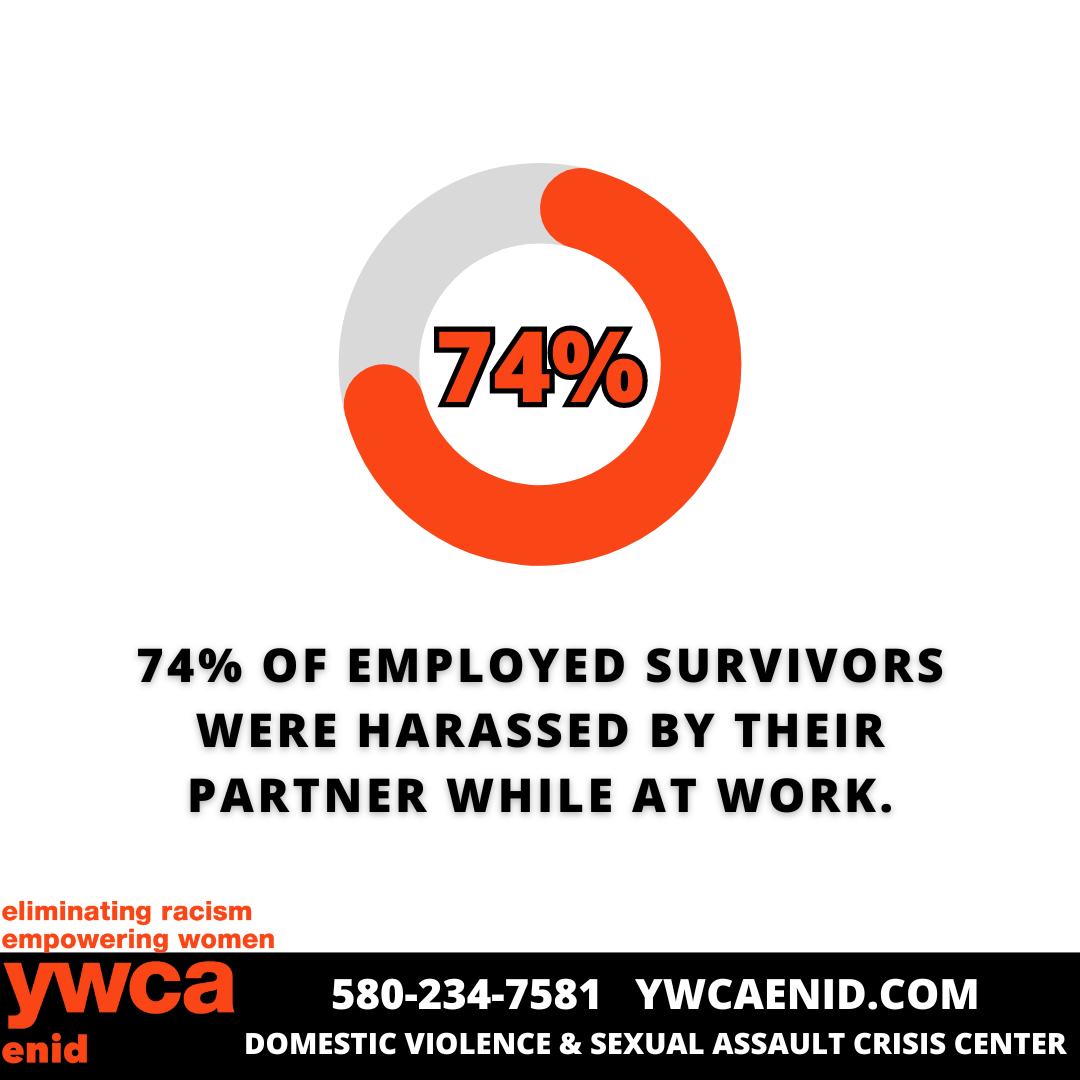Information & Resources for
Supporting Survivors
How to help ↘
When someone you care about has survived domestic violence, sexual assault, or stalking, knowing how to offer the right support is essential. Your response can significantly impact their healing process.
What are ways to support a survivor?
1.Recognize the Problem: Educate yourself about the signs of domestic violence, so they can recognize when someone you know may be a victim.
2.Reach Out: Express concern and offer support to the person you suspect might be experiencing domestic violence. Let them know you're there to help.
3.Believe the Victim's Story: Trust the victim's account of their experiences and assure them that you believe their story. Avoid being judgmental or dismissive.
4.Provide a Safe Place: Offer a safe and confidential space where the victim can discuss their situation, away from potential abusers or prying eyes.
5.Encourage Supportive Services: Offer information on available resources, such as YWCA Enid’s Crisis Center, SANE Program, Counseling, and Court Advocacy Services.
6.Assist without Imposing Solutions/Encourage Help, Don't Force: Encourage the victim to seek help, but respect their autonomy. Offer assistance without imposing solutions.
7.Be Respectful of Their Choice: Respect the victim's decisions, even if they choose not to immediately leave the abusive situation. Offer support without pressuring them to make decisions you think are best.
8.Follow Up and Follow Through: Check in with the victim periodically to see how they're doing and offer continued support. Ensure any promises or actions are followed through.
9.Do Not Compromise the Victim or Your Safety: When providing assistance, prioritize safety for the victim and for yourself. Maintain confidentiality and ensure actions taken don't jeopardize anyone's safety.
Why would someone stay in an abusing relationship?
Abusive relationships are incredibly complex, requiring immense courage to leave. Abuse centers around power and control, and when a survivor exits such a relationship, they threaten the established power dynamic, often prompting retaliation from the abuser. This retaliation can pose significant risks, and as a result leaving is often the most dangerous period of time for survivors of abuse.
There are many other reasons and factors that contribute to why individuals remain in abusive relationships, extending beyond physical dangers. Fear, isolation, financial dependence, low self-esteem, the cyclical nature of abuse, cultural or religious beliefs, concern for children, lack of support, trauma bonding, and hope for change all play roles. Understanding these factors is crucial in providing effective support and assistance to those in need. Regardless of circumstances, survivors deserve unwavering support in their decisions and empowerment as they navigate their journey toward reclaiming control over their lives.
Why People Stay ↘
Leaving an abusive relationship is a complex and challenging process that often requires support, resources, and careful planning.
Abuse can manifest in various ways and employers and colleagues can make a significant difference by recognizing these signs, knowing how to intervene, and being aware of the community resources available to support victims.
By educating professionals on domestic violence, the YWCA helps create safer and more supportive workplaces. Understanding and addressing domestic violence not only protects employees but also enhances overall workplace productivity and morale. Employers and colleagues, equipped with the right knowledge and tools, can make a profound difference in the lives of those affected by domestic violence.
The YWCA offers HR and management training focused on domestic violence and its impact on the workplace. Our programs educate professionals on how to effectively identify and respond to cases of abuse among employees.
Abuse in the Workplace↘
Domestic violence does not stay confined to the home; it often follows victims to work, leading to workplace violence.

FAQs
-
Unexplained Injuries:
Frequent bruises, cuts, or injuries with vague explanations.
Behavioral Changes:
Sudden shifts in personality, like increased anxiety or withdrawal.
Noticeable lack of confidence or self-worth.
Isolation:
Withdrawal from friends, family, or social activities.
Partner's interference with relationships.
Work and School Issues:
Frequent absences without valid reasons.
Decline in work or academic performance.
Excessive Jealousy and Control:
Intense jealousy or possessiveness from the partner.
Partner's control over actions, finances, or appearance.
Fear and Anxiety:
Expressing fear of the partner or their reactions.
Reluctance to discuss the relationship.
Excuses and Blaming:
Making excuses for the partner's behavior or injuries.
Frequent criticism or humiliation from the partner.
Monitoring and Restrictions:
Constant checking of communication devices.
Restriction of access to technology.
Financial Control:
Complete control over finances or work opportunities.
If you notice these signs, approach with empathy, encourage them to talk, and offer support and information about available resources.


